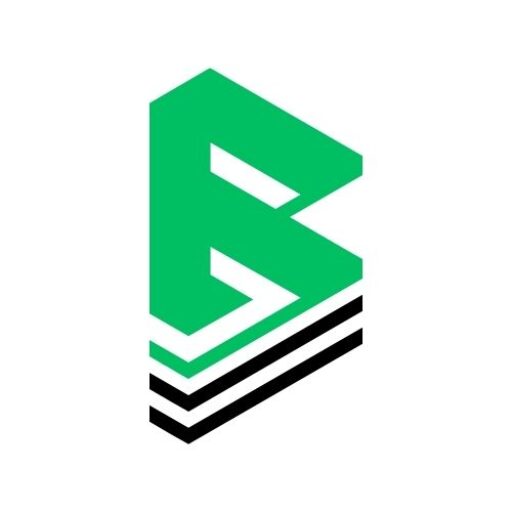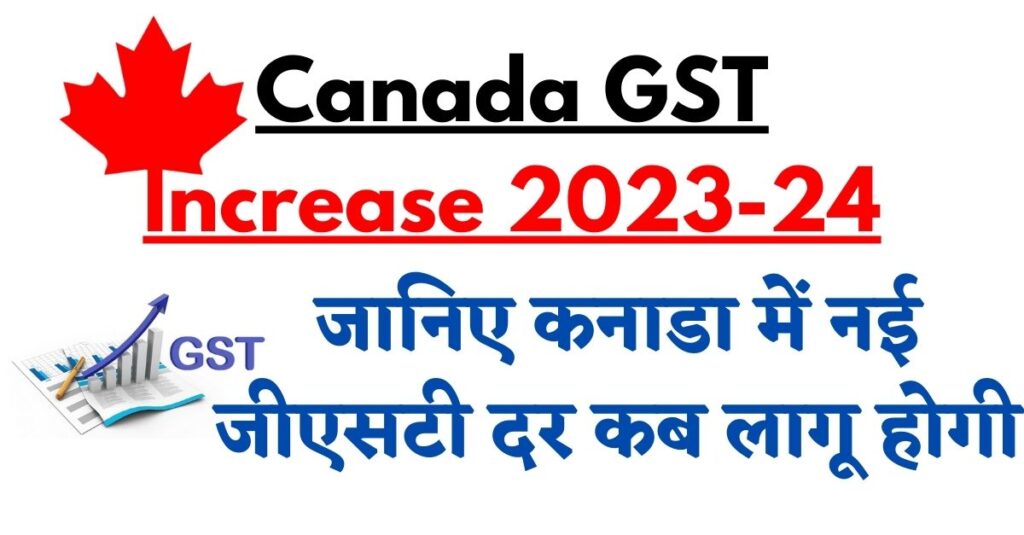Canada GST Increase 2024: Explore the details regarding the Canada GST Increase scheduled for 2023-2024 in Canada by referring to this article. It contains various pieces of information, including essential details about when the Canada GST Increase 2024 is expected to be implemented in Canada.
In Canada, GST is a tax that applies to Canadian goods and services. This applies not only to retail goods but also to real property, such as buildings, land, etc. Some provinces in Canada use HST by coordinating GST with their provincial sales taxes.GST tax is deposited by GST-registered people at the time of purchasing goods and services. Currently, the GST rate in Canada is 5%. This GST rate applies to taxable pre-supplies. More details on whether there will be a GST increase in 2023-2024 will be communicated by the Canadian Government.
Canada GST Increase 2024
If a person is GST registered, they normally levy tax and collect GST on taxable supplies. Additionally, they are required to file GST returns to report the tax deposited. There are some zero-rated supplies and some goods and services which are exempt from GST. There is no difference between zero-rated supplies and emergency supplies to customers. This is because no tax is charged in any of these. However, registered persons can avail of input tax credit on GST paid on purchases made for zero-rated supplies. So, Tax Applicable Supplies -> Charge GST -> Claim ITC. And if free -> don’t charge GST -> can’t claim ITC. When registered persons file their tax returns, they have to deduct ITC from the GST charged.
Canada GST/HST Credit Dates 2024: Credit Payment Schedule, Registration & Eligibility
Know what is the current GST rate across Canada
Some provinces use a combined form of their provincial sales tax and GST. Therefore, they have adopted different GST/HST rates. Some provinces use a single GST rate, namely 5% (not combining GST with provincial sales tax).
| Province in Canada | GST rate On or after October 1, 2016 |
| Yukon | 5% |
| Quebec | 5% |
| Manitoba | 5% |
| New Brunswick | 15% |
| Northwest Territories | 5% |
| Nova Scotia | 15% |
| Nunavut | 5% |
| British Columbia | 5% |
| Saskatchewan | 5% |
| Ontario | 13% |
| Alberta | 5% |
| Prince Edward Island | 15% |
| Newfoundland and Labrador | 15% |
Visit the CRA website for additional information on the current and historical GST rates in various provinces and territories.
Know to whom should register for the GST?
People must register for GST if they provide taxable supplies in Canada and they are not classified as small suppliers. If someone has registered their business for GST, they will also be registered for HST.
All the below-mentioned People do not need to register if –
- They are a small supplier.
- He is a non-resident who does not do business in Canada.
- Their only commercial activity is the sale of property.
GST Taxable supplies
Property and services provided/imported into Canada are subject to GST/HST. Exposed supplies to which the tax applies may include clothing and footwear, car repairs, franchises, sales of new residences, hotel accommodations, and sales and leases of automobiles.
GST Zero-rated supplies
Some supplies come under a GST rate of 0%. Although registrants cannot charge GST on these materials, they can claim ITC on the amount of GST/HST paid on services rendered for providing these materials. These may include feminine hygiene products, most farming pets, exports, basic groceries, etc.
$600 Child Tax Credit 2024: Check Eligibility Payment Date & Amount
Social Security Income Amount 2024: Check Eligibility & Payment Dates
$225 to $628 Toronto Grocery Rebate Amount 2024: Check Out the Eligibility & Payments Date
$2700 for Canadian Seniors by CRA: Check Eligibility, Payment Dates and Facts
$1550 CPP Payment Increased for Canada Seniors: Know Eligibility, Payment Dates & Amount
GST Exempt supplies
These may include legal aid services, music teaching classes, domiciliary ferry services, residential housing society fees, etc. GST does not apply to these types of supplies. For a full list of exempts, zero-rated, and taxable supplies, visit the official Government of Canada website.
When the new GST rate be imposed in Canada?
As of now, little is known about whether GST rates will increase in Canada in the coming years. Currently, the GST rate is 5% and it is likely to remain the same in the upcoming calendar year as well. However, if there is an increase or decrease in the GST rate in Canada, the Government of Canada will inform citizens.
Additionally, an increase in the GST imposed may also lead to an increase in the prices of goods and services. However, it may also increase the amount of GST credit an individual can receive. Similarly, according to GST reduction, there will be a reduction in the prices of various taxable goods.
In Canada, GST increases (if any increases) will be announced around the beginning of the next tax year. GST was initially charged at a 7% rate. After that, the GST rate charged in Canada has been reduced twice and currently, it is 5%. If there is no change, the GST rate will remain the same, i.e., 5%.
The likelihood of GST rate increases in Canada for 2023-2024 is uncertain at this time. The current rate of 5% is expected to remain in place, and any updates will be communicated by the Canadian Government. Individuals and businesses need to stay informed by checking the latest information from the CRA to understand their duties and responsibilities about their GST.

